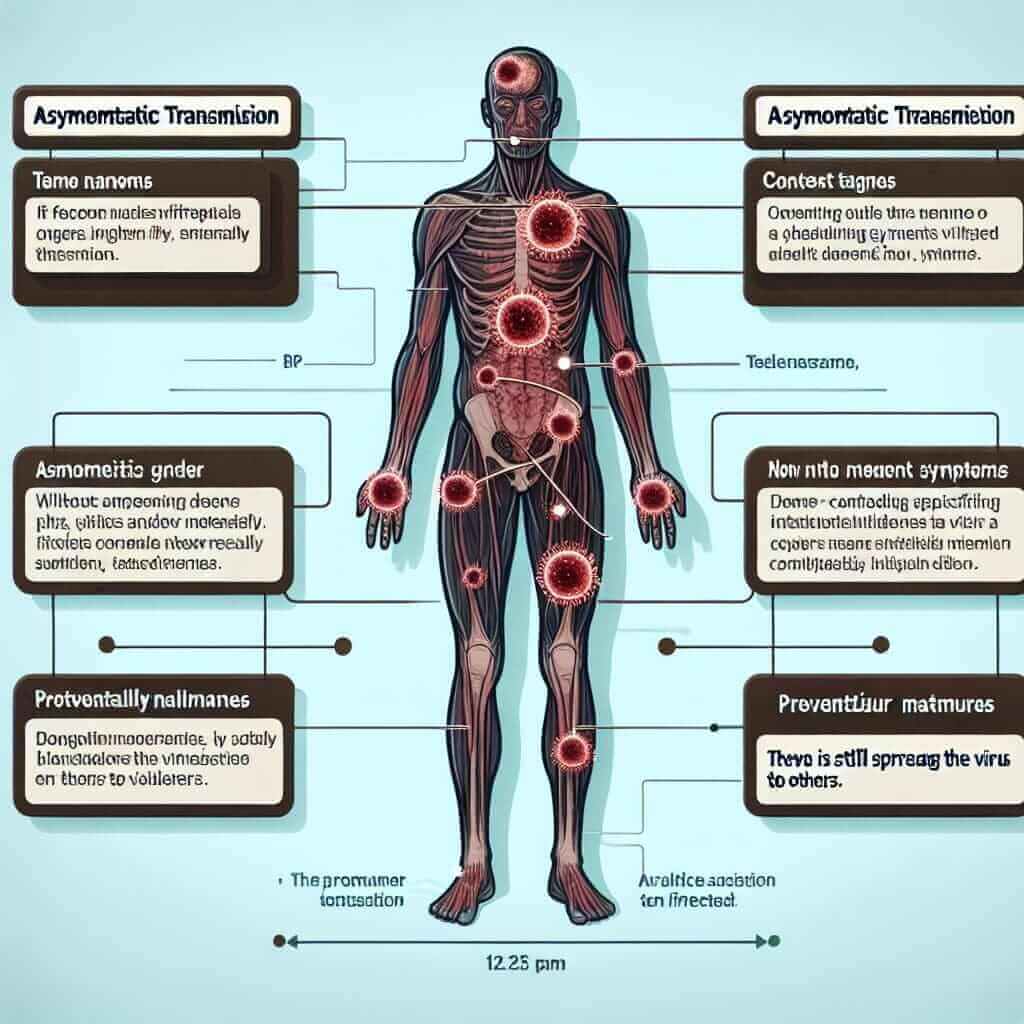The word “asymptomatic” frequently pops up in IELTS Reading, particularly in passages related to health and medicine. Understanding this word and its usage is crucial for achieving a high score in your IELTS exam.
Here are some synonyms for “asymptomatic”:
- Subclinical: (adjective) /sʌbˈklɪnɪkəl/ – Denoting a disease that is not severe enough to present definite or readily observable symptoms. Example: Subclinical infections can still be spread to others.
- Inapparent: (adjective) /ˌɪnəˈpærənt/ – Not easy to see or understand. Example: The symptoms of the disease were inapparent at first.
- Silent: (adjective) /ˈsaɪlənt/ – (Of a disease or other harmful condition) not producing any noticeable symptoms. Example: The virus can be silent for years before any symptoms appear.
And an antonym:
- Symptomatic: (adjective) /ˌsɪmptəˈmætɪk/ – Showing symptoms of a particular disease. Example: People who are symptomatic for COVID-19 should self-isolate.
Understanding “Asymptomatic”
Definition and Pronunciation
“Asymptomatic” (pronounced /ˌeɪsɪmptəˈmætɪk/) is an adjective that describes someone who carries a disease or infection but doesn’t exhibit any noticeable symptoms.
Usage in Context
The word is often used in medical contexts, especially concerning infectious diseases. For example, someone can be asymptomatic for COVID-19, meaning they carry the virus and can transmit it but don’t experience fever, cough, or other common symptoms.

“Asymptomatic” in the IELTS Exam
Reading Section
“Asymptomatic” often appears in the IELTS Reading section within passages about:
- Public health: Discussing disease outbreaks and prevention strategies.
- Medical research: Highlighting challenges in identifying and managing diseases with asymptomatic carriers.
- Social sciences: Examining the impact of asymptomatic diseases on individual behavior and societal responses.
Example in IELTS Reading
Question type: True/False/Not Given
Passage excerpt: “A significant proportion of individuals infected with the virus remain asymptomatic, making it difficult to control the spread of the disease.”
Statement: All people infected with the virus show symptoms.
Answer: False. The passage states that a significant proportion of infected individuals are asymptomatic, meaning they do not show symptoms.
Using “Asymptomatic” in Your Writing and Speaking
Writing Task 2
You can use “asymptomatic” to demonstrate your vocabulary range when discussing health topics:
Example:
“One of the biggest challenges in managing the pandemic is the prevalence of asymptomatic carriers, who unknowingly contribute to the spread of the virus.”
Speaking Part 3
When discussing health awareness or disease prevention, you can use “asymptomatic” to express your ideas effectively:
Example:
“I believe regular testing is crucial, even if you feel fine, because you could be asymptomatic and unknowingly transmit the virus.”
Collocations with “Asymptomatic”
- Asymptomatic carriers: Individuals who carry a disease without showing symptoms.
- Asymptomatic infection: An infection that doesn’t produce any noticeable symptoms.
- Asymptomatic stage: The period during which a person is infected with a disease but does not yet exhibit symptoms.
Idioms Related to Health and Wellbeing
- Fit as a fiddle: In excellent health. Example: “My grandfather is 90 years old, but he’s still as fit as a fiddle.”
- Under the weather: Feeling unwell. Example: “I’m feeling a bit under the weather today, I think I might have a cold.”
- Back on one’s feet: To be healthy again after an illness or injury. Example: “I was in bed with the flu last week, but I’m back on my feet now.”
Conclusion
Mastering vocabulary related to health and medicine, like “asymptomatic,” is crucial for success in the IELTS exam. By understanding its meaning, usage, and synonyms, you can enhance your reading comprehension, express your ideas clearly in writing, and demonstrate your vocabulary range in the speaking test. Continue to expand your vocabulary with relevant terms and practice using them in context to improve your IELTS score.